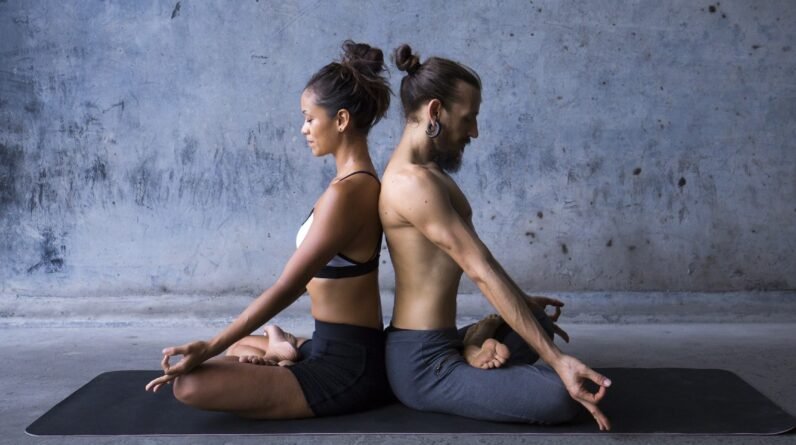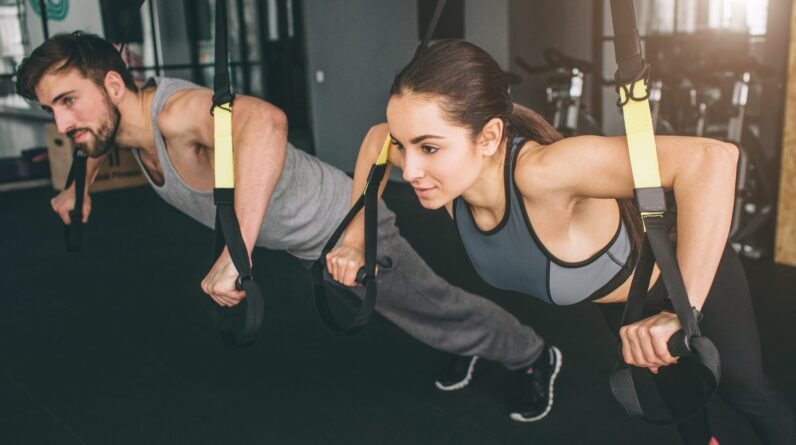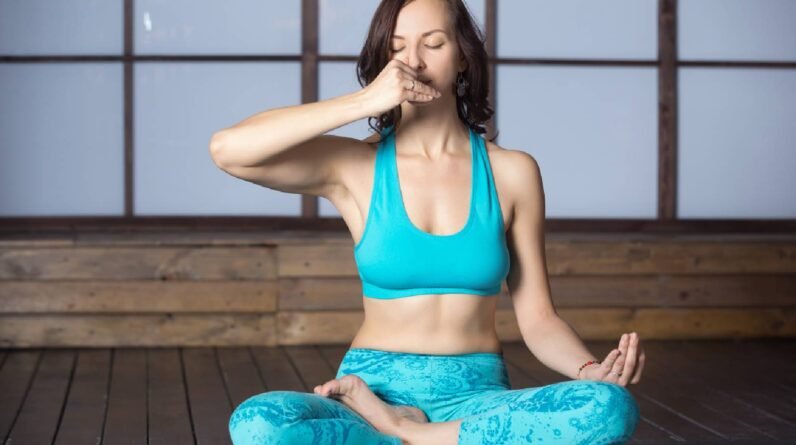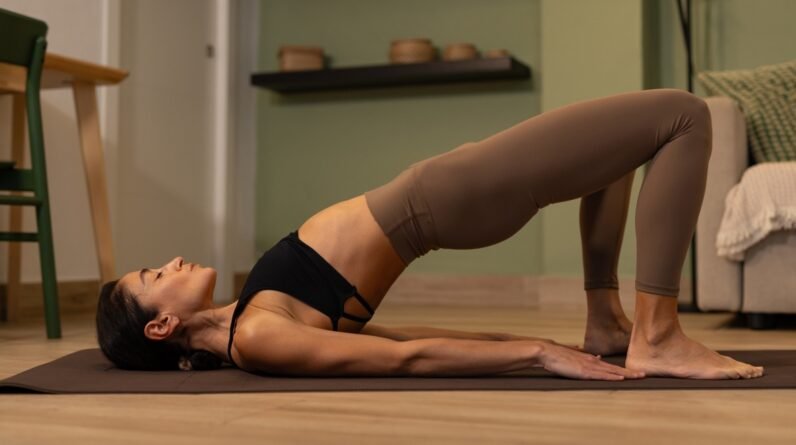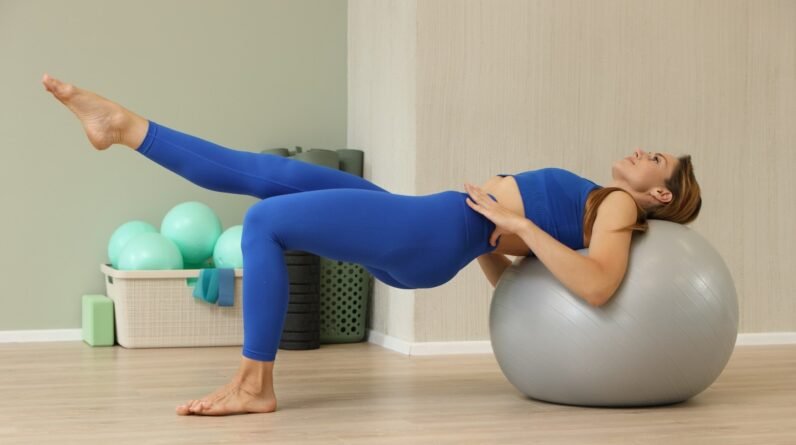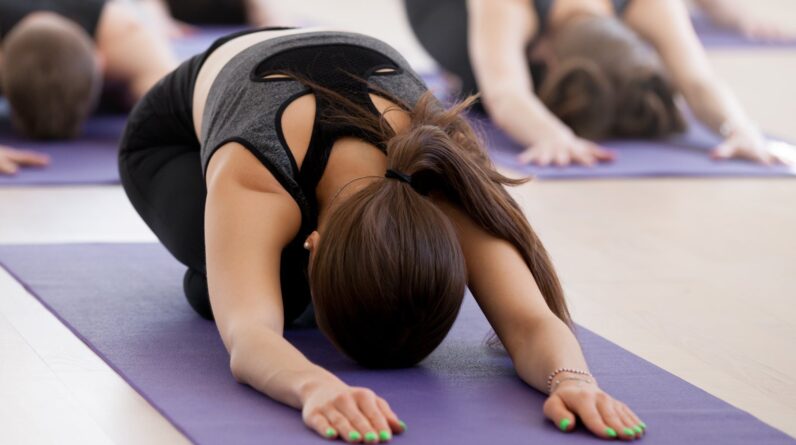
Hatha yoga asanas help to calm the mind and body by balancing the masculine and feminine energies in the body. Let us tell you the benefits of hatha yoga.
Hatha yoga is a yoga system rooted in yogic traditions and culture. It aims to enhance the flexibility of the body by combining the richness of both solar and lunar energies. Hatha yoga asanas offer numerous benefits, including increased spine flexibility, improved immunity, and mental calmness. Although beginners may find some of the positions challenging, with practice, they will get better. Hatha yogis aim to refine not only the muscles and the locomotor system but also the whole being, including the mind, nervous system, and vital inner organs. Let’s explore the benefits of hatha yoga and how to include it in your routine.
What is hatha yoga?
“Hatha” is a combination of two Sanskrit words: “Ha” which means the sun and “tha” which means the moon. The goal of hatha yoga is to align the sun and the moon in you. The purpose of practising hatha yoga is to prepare your body, mind, and spirit for meditation by calming them. It is a practical form of the ancient Indian yogic discipline that aims to promote mental and physical health, inner serenity, and happiness. In addition, practising hatha yoga helps to balance your masculine and feminine aspects, which deepens your consciousness. It is the first step towards achieving a balance between masculine and feminine energy, which is essential for realising your maximum potential, says yoga expert Dr Hansaji Jayadeva Yogendra.

What are the benefits of hatha yoga asanas?
Here are some of the potential benefits of hatha yoga asanas:
- Hatha yoga encourages stretching and holding poses, gradually increasing flexibility in muscles and joints.
- Asanas in hatha yoga engage various muscle groups, promoting strength and endurance.
- This type of yoga emphasises proper alignment and balance, which translates into improved posture.
- Practicing hatha yoga helps in the reduction of stress and anxiety.
5 hatha yoga asanas for your overall well-being
Here is a complete guide on how to do hatha yoga asanas.
1. Kukkutasana or cockerel pose
It embodies balance and strength, connecting you to your spiritual energy, says the expert.
Also Read

How to do:
- Start in padmasana or lotus pose.
- Insert hands between calves and thighs.
- Push arms through, reaching elbows.
- Place palms on the floor, fingers forward.
- Straighten your head, gaze ahead, and lift your body with your hands.
- Maintain a straight back, and hold the pose.
- Lower back to the floor, releasing arms and legs.
- Repeat with leg position change.
2. Uttana Koormasana or inverted tortoise pose
It is an advanced variation of Kukkutasana.
How to do:
- Begin in padmasana foot-lock, crossing the right foot over the left thigh and the left foot over the right thigh.
- Insert hands between thighs and calves, reaching elbows.
- Hold the neck with your hands, forming a finger lock, and lie on your back.
- Maintain the pose as long as comfortable.
- Release by unlocking fingers and returning to a sitting position.
3. Siddhasana or perfect pose
It is a revered yoga posture, symbolising adeptness and perfection. Its roots trace back to ancient texts, highlighting its significance in meditation and liberation, says the expert.
How to do:
- Sit upright on the floor.
- Extend legs about a foot apart.
- Bend the left leg, placing the foot against the right thigh.
- Bend the right leg, inserting the foot between the left thigh and calf.
- Keep your spine straight, your wrists resting on your knees, and breathe deeply.
- Meditate in this pose for your desired duration.
- Focus on steady breathing, inhaling deeply, and exhaling twice as long throughout the practice.
4. Paschimottanasana or west stretching pose
Paschimottanasana emphasises spinal fitness and cultivates a sense of achievement with humility.
How to do:
- Sit on the mat with legs fully stretched, feet together, and toes facing upwards.
- Maintain an erect spine, firm shoulders, and neck.
- Keep hands beside the body with palms facing down.
- Raise both arms beside the chest, folded at the elbows, parallel to the ground, palms facing down.
- Inhale and lean back, pulling the trunk while keeping the spine straight and toes pointing outwards.
- Exhale smoothly and bend forward, drawing in the abdomen, simultaneously stretching the hands to cross the toes while pulling them inwards.
- Inhale and return to position B, repeating steps 2 and 3 continuously, resembling rowing a boat.
- After four cycles (1 round), return to the starting position by resting the arms by the side.

5. Bhadrasana or gracious pose
It is a meditation asana, capable of alleviating fatigue and eliminating diseases.
How to do:
- Sit on the mat with legs fully stretched forward, feet together, and toes pointing upwards. Keep hands beside the body with palms resting on the mat.
- Maintain a straight neck, chest forward, abdomen relaxed, and chin drawn in. Focus eyes straight ahead.
- Inhale and draw both legs close to the body, keeping them in contact with the floor, with knees bent outward and soles of feet together.
- Bring feet, toes pointing outward, close to the genital area, and heels towards the perineum.
- If needed, clasp feet to bring heels closer to the body.
- Once in position, place hands on respective knees and press them down.
- Maintain this posture for 1 to 2 minutes, breathing normally.
- Return to the starting position by slowly stretching the legs.
While hatha yoga offers numerous benefits it needs endurance and the asanas can cause discomfort and strain if practiced incorrectly.
The ideal time to practice hatha yoga is early morning as the time is conducive to setting a positive tone for the day and enhancing energy levels. However, others may prefer practicing in the evening to unwind from the day’s stress.


